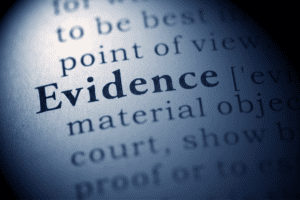The Basic Limitation Period
In Ontario, there is a two-year limitation period for civil litigation claims. Section 4 of the Limitations Act, 2002, SO 2002, c 24, Sched B, provides:
Unless this Act provides otherwise, a proceeding shall not be commenced in respect of a claim after the second anniversary of the day on which the claim was discovered.
If a civil litigation claim is not commenced within the limitation period, then the claim is statute-barred and cannot be brought.
Section 5(1) of the Limitations Act, 2002 defines when a claim is discovered as follows:
5 (1) A claim is discovered on the earlier of,
(a) the day on which the person with the claim first knew,
(i) that the injury, loss or damage had occurred,
(ii) that the injury, loss or damage was caused by or contributed to by an act or omission,
(iii) that the act or omission was that of the person against whom the claim is made, and
(iv) that, having regard to the nature of the injury, loss or damage, a proceeding would be an appropriate means to seek to remedy it; and
(b) the day on which a reasonable person with the abilities and in the circumstances of the person with the claim first ought to have known of the matters referred to in clause (a).
Notwithstanding section 5(1), section 5(2) provides that a person with a claim shall be presumed to have known of the matters referred to in clause (1) (a) on the day the act or omission on which the claim is based took place, unless the contrary is proven.
With respect to demand obligations, the day on which the injury, loss or damage occurs is the first day on which there is a failure to perform the obligation, once a demand for the performance is made. This applies to every demand obligation created on or after January 1, 2004.
Exceptions to the Basic Limitation Period
There are exceptions to the basis limitation though, including, but not limited to:
- Minors;
- People incapable of commencing a claim because of their physical, mental or psychological condition;
- Where the parties to a claim all agree to have an independent third party resolve the claim or assist in resolving the claim
- Etc.
It is important to note that the basic two-year limitation may be tolled in these circumstances, but will begin to run at a certain point. It is important to consult the Limitations Act, 2002 for specifics to ensure that your limitation period does not expire before you issue your civil litigation claim.
Acknowledgments of Debt
Section 13 of the Limitations Act, 2002 provides that if a person acknowledges liability in respect of a claim for payment of a liquidated sum, the recovery of personal property, the enforcement of a charge on personal property or relief from enforcement of a charge on personal property, the act or omission on which the claim is based shall be deemed to have taken place on the day on which the acknowledgement was made. In other words, the basic two-year limitation period will begin to run on the date the debt (or liability) is acknowledged.
In addition, an acknowledgment of liability in respect of a claim for interest is deemed to be an acknowledgment of liability in respect of a claim for the principal and for interest falling due after the acknowledgment is made.
An acknowledgment of liability will apply in respect of a claim for payment of a liquidated sum even though the person making the acknowledgment refuses or does not promise to pay the sum or the balance of the sum still owing.
To be valid, the acknowledgment must be made in writing and signed by the person making it or the person’s agent.
Again, before making any kind of acknowledgement, it is important to review section 13 of the Limitations Act, 2002 and be aware of the impact an acknowledgment can have on civil litigation claims.
Text Message Acknowledges Debt
Recently, many lawyers became very excited about the Ontario Divisional Court’s decision in 1475182 Ontario Inc. o/a Edges Contracting v Ghotbi, 2021 ONSC 3477, in which the Court held that an acknowledgment of liability may be done via text message.
In its decision, the Court confirmed the following principles:
- The debtor does not have to demonstrate and confirm the amount of the debt that remains owing for the acknowledgment to be effective;
- An effective acknowledgment does not require that there be no dispute as to the exact amount owing;
- An effective acknowledgment must be clear and unequivocal;
- An effective acknowledgment must be in writing;
- An email with the debtor’s name on it can constitute an effective acknowledgment (see Lev v Serebrennikov, 2016 ONSC 2093);
With respect to section 13(10) of the Limitations Act, 2002, which requires a signature for an effective acknowledgment, the Court held that the main concern was the authenticity of the acknowledgment. Section 13(10) also does not prescribe any particular type of signature.
The Court considered the ever-changing digital world and the need for the law to keep pace with such changes. Specifically, it wrote that “it is incumbent upon the court to consider not just traditional means of affixing one’s signature to a document, but other, more modern means, including digital signatures”. Cell phones have unique identifiers that provide, in effect, a digital signature on every message sent by the user of that particular cellular device. This digital signature was sufficient to meet the requirements of section 13(10) of the Limitations Act, 2002.
As many have experienced with the COVID-19 pandemic, courts and the legal profession must adapt to the digital world – and quickly. In a professional that is often slow to change though, this decision provides welcome hope and promise for a more modernized judiciary and judicial system, which will allow the legal world to keep pace with the digital world.
If you have a debt that you need collected, or defended, please contact one of the civil litigation lawyers at Richardson Hall LLP to see how we can help.






